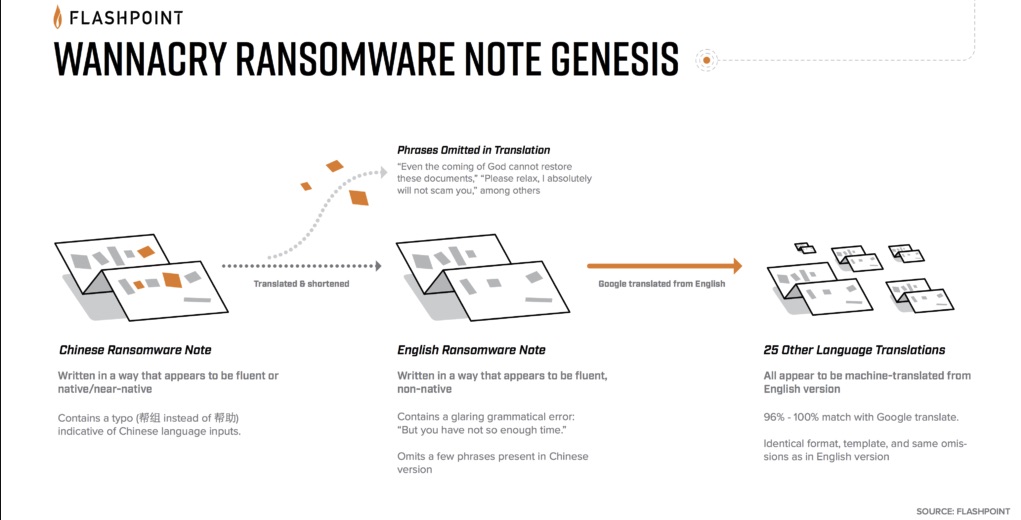Well, no-one knows who are the mastermind behind this ransomware. Recent research from security firm Flashpoint points a hint towards a Chinese connection. The security firm had described its linguistic analysis of the ransom notes.
WannaCry Ransomware Mastermind Is More Likely From China!
Earlier this year the hacking group ‘The Shadow Brokers’ chose to give away the hacking tools that were stolen from the NSA for free. Well, the tools can be utilized to hack machines running on Microsoft Windows.
The malicious software WanaCryptor 2.0 which is also known as WCry is now being used to carry out one of the biggest ransomware attacks of its kind. Well, it’s more than a week since this ransomware started causing distress among the internet users.
Well, no-one knows who are the mastermind behind this ransomware. However, it looks likes WannaCry Ransomware hackers are most likely from China.
Recent research from security firm Flashpoint points a hint towards a Chines connection. Well, the security firm had described its linguistic analysis of the ransom notes that were displayed to the victims.
The team analyzed the ransom notes individually for accuracy, style, and content. The firm after analyzing the notes found that whoever the author was they are likely to be good or fluent in Chinese.

Flashpoint also claimed that out of 28 different notes, only two Chinese and one English version appear to be written by a human. Other 25 notes appear to be translated from the English note using Google Translate.
Flashpoint also wrote “The two Chinese ransom notes differ substantially from other notes in content, format, and tone. Google Translate fails in both Chinese-English and English-Chinese tests, producing inaccurate results that suggest the Chinese text was likely not have been similarly generated by the English text.”
The research also revealed some unique characteristic that simply symbolizes that a Chinese expert had written it. The Chinese note also used proper punctuation, syntax, and grammar. Well, the firm also mentioned that such hints can also be intentionally included to mislead.
You can read the full research here. So, what do you think about this? Share your views in the comment box below.